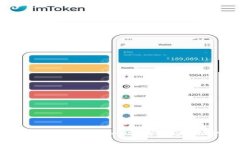在数字货币迅猛发展的今天,越来越多的人开始关注并参与到加密数字货币的投资与交易中。与这一新兴市场相关的概念中,加密数字货币钱包作为安全存储和管理数字资产的工具,显得尤为重要。本文将从加密数字货币钱包的定义、种类、使用方法、安全性等方面进行深入探讨,以帮助用户更好地理解和使用这一工具。
什么是加密数字货币钱包?
加密数字货币钱包是一种用于存储、发送和接收数字货币(如比特币、以太坊等)的工具。与传统的钱包不同,加密钱包并不存储实际的货币,而是存储与区块链上的数字资产相联系的私钥和公钥。私钥是用来访问你的数字货币的秘密代码,而公钥则是你的钱包地址,其他人可以将数字货币发送到这个地址。
数字货币的钱包可以是软件应用(如手机应用、电脑软件),也可以是硬件设备(如硬件钱包),甚至可以是纸质钱包(将私钥纸质化)。不同类型的钱包各有优劣,用户在选择时需要根据自身需求和使用场景进行判断。
加密数字货币钱包的类型

依据存储方式和使用便利性,加密数字货币钱包大致可以分为以下几类:
1. 热钱包
热钱包是指与互联网连接的钱包,包括手机应用、网页钱包等。由于便捷性和易用性,热钱包适合频繁交易的用户,但其安全性相对较低,容易受到黑客攻击和网络诈骗。
2. 冷钱包

冷钱包则是断开互联网连接的钱包,常见的有硬件钱包和纸质钱包。冷钱包适合长期存储资产,其安全性极高,黑客无法直接连接,但设置和使用相对复杂。
3. 软件钱包
软件钱包是指通过程序或应用进行管理的加密钱包,用户可以在电脑或手机上下载使用。软件钱包的种类繁多,从简单易用的轻钱包到功能强大的全节点钱包应有尽有。
4. 硬件钱包
硬件钱包是一种以物理设备形式存在的密码钱包,通常通过 USB 连接电脑或手机使用。由于其将私钥离线存储,因此被认为是最安全的选项之一,适合大额资产的储存。
5. 纸质钱包
纸质钱包是将公钥和私钥打印在纸上的形式,虽然它完全与网络隔离,但保存不当会导致资产丢失。因此在使用时需特别小心,避免破损或遗失。
如何选择合适的加密数字货币钱包?
选择合适的加密数字货币钱包涉及多个因素,包括安全性、便利性、支持的货币种类等。以下是几个需要考虑的重要方面:
1. 安全性
安全性是选择钱包时的首要考虑因素。热钱包因其始终联网,容易受到安全威胁,而冷钱包在安全性上更具优势。如果您计划持有大量的数字货币,建议使用硬件钱包或冷钱包进行长期存储。
2. 使用便利性
对于新手或者频繁交易的用户,选择一个操作简单、界面友好的钱包非常重要。例如,许多热钱包提供了用户友好的界面和便捷的交易方式,适合初学者。另外,软件钱包一般会提供操作指南,帮助用户快速上手。
3. 货币支持
不同钱包对数字货币的支持程度不同,有的仅支持个别主流币种,而有的则支持多种数字资产。在选择时,需要确认所使用的钱包是否支持您计划投资或交易的数字货币。
4. 社区反馈和评价
用户的反馈和评价可以给您提供使用钱包的良好参考。通过查看在线论坛、社交平台或专业评测文章,了解其他用户的使用经验,能够帮助您做出更明智的选择。
加密数字货币钱包的使用步骤
使用加密数字货币钱包存储和管理数字资产,一般需要遵循以下步骤:
1. 下载或购买钱包
选择适合的数字货币钱包后,按照官网提示下载相应软件,或者购买硬件钱包设备。确保从官方渠道获取,以免下载到恶意软件。
2. 创建账户或钱包
在创建钱包时,需要设置密码或备份助记词,以保护钱包中的资产。建议将备份信息妥善保存,不要将其保存在互联网设备上。
3. 资金转入
通过钱兑换或从其他钱包转入数字资产。您需要获取钱包的公钥地址,将其复制并分享给对方,当然在发送前要仔细核对,以避免资金损失。
4. 资产管理与交易
在钱包界面中,通常会显示所持有的不同资产和其余额。此外,一些钱包还允许用户进行交易。用户可以方便地进行转账、兑换等操作。
5. 安全保护
为防止黑客攻击,建议定期更新钱包软件,使用强密码,并启用两步验证等安全措施。此外,确保电脑或手机没有恶意软件,并定期备份钱包信息。
常见问题解答
1. 如何确保我的数字货币钱包安全?
确保 digital currency wallet security involves multiple factors:
First, choose a reputable wallet provider and conduct background research on their security features. Many wallets have strong encryption and two-factor authentication (2FA) capabilities. Implementing 2FA adds an extra layer of security by requiring a verification step during login, such as a code sent to your mobile device.
Second, always keep your software up-to-date. Wallet companies frequently release updates to patch security vulnerabilities, so make it a habit to check for updates regularly and install them promptly.
Third, utilize cold storage for long-term holdings. Cold wallets, like hardware or paper wallets, are not connected to the internet, making them significantly less vulnerable to hacking attempts. For significant amounts of digital currency, this is a recommended practice.
Lastly, maintain local security measures. Ensure your devices have reliable antivirus software installed, avoid clicking on suspicious links or emails, and be cautious of phishing scams that aim to steal your passwords or private keys.
2. 数字货币钱包丢失或被盗该怎么办?
If you lose access to your digital currency wallet or if it has been stolen, recovering your assets will depend on how you have set it up in the first place. For various types of wallets, the recovery methods are often different.
In the case of a software wallet, most platforms will give users an option to recover their account using a 12 to 24-word backup seed phrase. This phrase is essential and should be kept private. If you have misplaced it, unfortunately, you may not be able to recover your wallet.
For hardware wallets, recovery is usually straightforward, provided that the user has the recovery seed phrase written down and stored securely. By entering this phrase in a new device of the same brand, users can regain access to their funds.
If your wallet has been hacked, and you still have access to your wallet, quickly send your assets to a new, secure wallet. By acting fast, you may be able to mitigate losses. Always contact your wallet provider for assistance, as they may offer options or advice specific to their services.
3. 如何备份我的数字货币钱包?
Backing up your digital currency wallet is crucial for safeguarding your assets. The specific methods may vary depending on the type of wallet you are using:
For software wallets, the application usually comes with a built-in feature to export and save your private keys or seed phrase. When setting up the wallet, you should be prompted to create a recovery phrase. Write this phrase down on a secure piece of paper and keep it in a safe location.
If you are using a hardware wallet, it typically generates a recovery seed upon initial setup. Make sure to write down this seed phrase and store it securely offline. Some hardware wallets also allow for multiple backup options, such as using a secure USB drive.
Paper wallets must be created offline and printed or written down. To back up a paper wallet, consider creating duplicates of the document in secure locations, such as a safe or safety deposit box.
Regardless of the method of backing up your wallet, it’s essential to keep the backup secure and separate from your devices to prevent theft or loss.
4. 加密货币钱包是否支持多种货币?
Yes, many digital currency wallets are designed to support multiple currencies, enabling users to hold various cryptocurrencies within a single wallet interface. This makes managing your assets easier and reduces the need for multiple wallets.
When selecting a wallet, check the specifications on what currencies it supports. For instance, many software wallets support popular cryptocurrencies like Bitcoin, Ethereum, Litecoin, and Ripple. Some advanced wallets and exchanges allow users to hold thousands of altcoins as well.
Furthermore, decentralized wallets might have broader compatibility by allowing users to connect to various decentralized finance (DeFi) platforms and tokens. However, be mindful that while multi-currency wallets provide convenience, they may also expose you to potential security risks if not managed properly.
For users who primarily invest in just one or a couple of cryptocurrencies, a specialized wallet might be more suitable as it could offer enhanced security features tailored to those specific assets.
5. 为什么需要使用加密钱包而不是交易所提供的钱包?
While cryptocurrency exchanges provide wallets for their users, it is essential to understand the risks associated with relying solely on these wallets. First and foremost, using exchange wallets means you do not control your private keys; the exchange does. This makes you vulnerable to the exchange's security risks and potential hacking.
Cryptocurrency exchanges have experienced high-profile hacks in the past, resulting in the loss of millions of dollars in user funds. If you’ve kept your assets in an exchange wallet and the exchange is compromised, you may lose your investments without a way to recover them. In contrast, with a personal cryptocurrency wallet, you have complete control and ownership over your private keys and assets.
Furthermore, personal wallets provide better security features tailored to your needs. They allow users to implement security measures, such as hardware wallets, two-factor authentication, and individual backup protocols. You can manage and secure your investments as you see fit.
Also, when using a personal wallet, you are not subjected to the limitations and policies of an exchange. You can send and receive funds without restrictions, and you have more flexibility in handling your digital assets.
通过以上内容,我们已经深入了解了关于加密数字货币钱包的多方面知识。希望这些信息能够帮助您选择适合自己的钱包,安全地存储和管理数字资产。无论您是新手还是有经验的投资者,理解钱包的功能及其安全性都是至关重要的。


